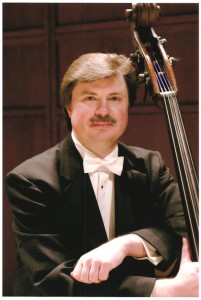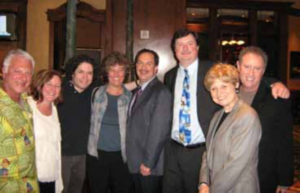
Photo credit: Michael Zirkle
Recently, Michael Steele was asked to name his favorite book, and he answered War and Peace. He then went on to quote from the book, saying “It was the best of times; it was the worst of times.” Aside from not knowing the difference between Tolstoy and Dickens, I thought his reference was appropriate, as it is the best of times, and it is the worst of times.
The notion that anything about these times might be positive must seem to be a fantastic statement when we look at the state of art and music in America. We are seeing a renewed series of attacks on the arts and attacks on unions. It feels like 1980 all over again. The air traffic controllers union was wiped out by the government, and opponents of public funding for the arts would soon attack the funding of one photographer as indicative of moral decay and federal waste.
Ahh, nostalgia. Leg warmers, anyone?
In 2011, legislators have once again proposed drastic cuts to the National Endowment for the Arts, and a few have suggested eliminating funding completely. This despite the fact that every dollar the government invests in the arts returns seven dollars to the community.
It is patently absurd to suggest that in order to address budget deficits, we must cut the NEA. The deficit is something like $1.5 trillion, and the budget for the NEA is $165 million. It is such a small fraction of the budget—a little over one one-hundredth of one percent!—that cutting it in order to achieve fiscal responsibility is a little like gambling away all of your savings, and then deciding to unplug your microwave to save money on electricity. Our country needs to create jobs, and the arts lead to over 5.7 million jobs annually.
And what else is wrong? Well, where do I begin?
As of this writing, The Detroit Symphony remains on strike, with management having “suspended” the rest of the season. The musicians of the Louisville Orchestra had to resist an attempt by their management to put them into bankruptcy; fortunately, a judge refused to uphold this attempt. A renewed attack on unions has led to widespread demonstrations, most notably in Madison, Wisconsin, but also in town squares and government plazas across America.
It is the age of wisdom, and it is the age of foolishness.
It might appear that there is not much good happening right now—but I don’t see it that way.
I look out and sense that we are entering a renewed era of activism. Those who would seek to undermine the arts in America may well overplay their hand. Even politicians such as Mike Huckabee are fighting back against the negativity of denying our children access to the arts. The demonstrations in Madison have been uniformly civil and positive. In our field, while some managements seek to study their own demise and create “a new model” that would only hasten the erosion of our greatest cultural institutions, there are also other voices speaking out, and other successes being achieved despite what some see as a concerted attempt from the field to thwart the positive efforts. Michael Kaiser is traveling across the world with his positive message, and musicians are unifying in even greater ways. The musicians of Cincinnati Symphony and the National Symphony have reached out to assist the Louisville Orchestra musicians (if I may call them that) in a tremendous show of friendship and support.
(I muse on whether I can mention the musicians of the Louisville Orchestra, as their management has absurdly prohibited them from using that name. To quote from the musicians’ press release: “Major Orchestra Across Ohio River from Jeffersonville, Ind., Prohibits Instrumentalists from Naming Organization in Which They Play.”)
All arts organizations depend on a great deal of good will in order to be successful. Right now, managements in several places are becoming masters at creating bad will in their communities.
Despite this, other orchestras have recently settled contracts peacefully. The New York Philharmonic has announced it has raised more than $90 million, even though their goal was only $50 million. The Atlanta Symphony has received a major bequest. In Honolulu, a group of citizens has emerged to attempt to bring their orchestra back to the stage, possibly with the assistance of ICSOM’s great friend JoAnn Falletta.
But in Detroit, management continues to talk about the new model. In this regard our field is unique. What other business emulates its failures to create a new business model? With other well-managed orchestras succeeding, why are we not studying those to raise the bar instead of studying our industry’s managerial pot holes to lower the aspirations of entire communities?
It is the epoch of belief, it is the epoch of incredulity.
A friend of mine at one of our local universities wrote to me recently, reflecting on a lecture she had just heard and putting it in context of the news reports she has been following from Detroit. She wrote:

Following this year’s midwinter meeting of the ICSOM Governing Board in Los Angeles, some ICSOM officers met with musicians and management of the Los Angeles Philharmonic. Pictured (from the left) are guitarist Angel Romero, Laura Ross, Music Director Gustavo Dudamel, Meredith Snow, Brian Rood, Bruce Ridge, Executive Director Deborah Borda, and Peter Rofé.
This week in graduate seminar a professor from UNC came over to tell us how he is co-opting Moore’s law to design vaccines through imprint lithography. I had to look up Moore’s law on Wikipedia. Here is the condensed version: In 1965, Intel co-founder Gordon Moore observed that “the number of components in integrated circuits had doubled every year from the invention of the integrated circuit in 1958 until 1965 and predicted that the trend would continue “for at least ten years.”
What is interesting to me about this is the following:
“Although Moore’s law was initially made in the form of an observation and forecast, the more widely it became accepted, the more it served as a goal for an entire industry. This drove both marketing and engineering departments of semiconductor manufacturers to focus enormous energy aiming for the specified increase in processing power that it was presumed one or more of their competitors would soon actually attain. In this regard, it can be viewed as a self-fulfilling prophecy.
Maybe you could come up with a kind of Moore’s law for your industry based on observations of what is working and has improved over the last twenty years. Give people something to work for instead of something to work against.
All of this struck me as especially relevant. Indeed the managements who seek to create the new model by proclaiming a new apocalypticism are creating negative self-fulfilling prophecies. We must articulate positively how the field can change in order to achieve growth, to serve in even better ways, to increase relevance.
In a world that occasionally slumps with its burdens, our music is needed more than ever. We have never been more relevant.
It is the season of Darkness, it is the season of Light.
We must not become despondent over the assault of nonsense. We must be inspired to change. Instead of “Moore’s Law” we should create “ICSOM’s Law,” where success is expected and failure is not rewarded. Success breeds success, and failure breeds failure. Americans want to hear a positive message of advocacy, and they want to hear a message of hope. Conveniently, we have one.
Musicians everywhere must be proud and even amazed that the response to ICSOM’s Call to Action to assist the musicians of the Detroit Symphony has reached $300,000, meaning that since 2007 ICSOM has raised well over $600,000 to assist our members in need. But we must do more.
In today’s modern culture, the truth belongs to the people who say it most effectively. And sadly, to articulate the truth effectively you must have the funds to pursue a strategic public relations campaign. Recently a group of 400 Rabbis bought a full-page ad in the New York Times expressing some concerns. They didn’t just buy an ad—they bought news coverage and attention for their cause. But the ad itself cost $150,000.
Throughout this piece, I have enjoyed paraphrasing from Michael Steele’s other favorite book, A Tale of Two Cities. I think how we move forward is up to us, as no one else is going to do this for us. When things are hardest is when we must be at our best. When we are surrounded by doubt we must surround ourselves with friendships and hope. The more difficult things become, the harder we must work.
Across the world, people are rising up. The musicians of ICSOM must join that movement and positively articulate our message in a way that it can be heard.
It is the best of times, it is the worst of times. It is the winter of despair, it is the spring of hope.





